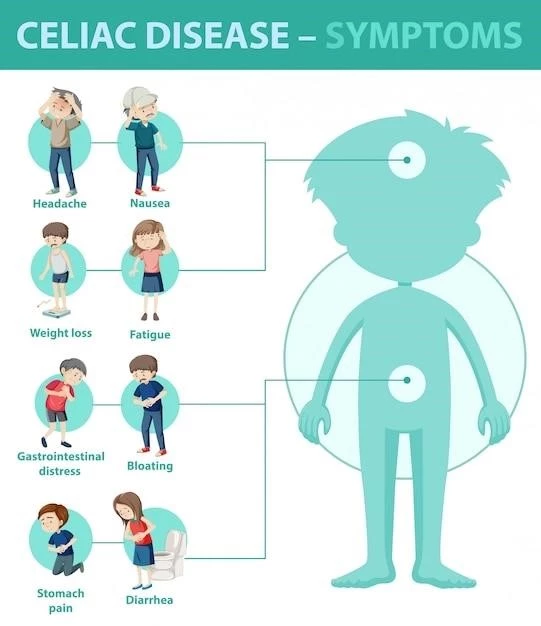Disease Overview of Devriendt–Vandenberghe–Fryns Syndrome
Devriendt–Vandenberghe–Fryns Syndrome is a rare genetic disorder characterized by developmental delay, facial anomalies, speech delay, and cognitive impairment. Individuals with this syndrome may experience low muscle tone and require specialized medical care for health management.
Understanding Devriendt–Vandenberghe–Fryns Syndrome
Devriendt–Vandenberghe–Fryns Syndrome, also known as chromosome 8 syndrome, is a genetic disorder that affects various aspects of an individual’s development. It is characterized by developmental delay, intellectual disability, facial anomalies, low muscle tone, and speech delay.
Individuals with this syndrome may present with cognitive impairment, requiring specialized medical care and ongoing support. The syndrome was first described by Devriendt, Vandenberghe, and Fryns, leading to its eponymous name. Understanding the genetic basis of the syndrome is crucial for accurate diagnosis and management.
Medical geneticists play a key role in diagnosing and counseling individuals and families affected by Devriendt–Vandenberghe–Fryns Syndrome. Diagnostic testing, including chromosomal analysis, is essential for confirming the presence of the genetic disorder. Early intervention and tailored care plans can help improve the quality of life for individuals living with this rare disease.
Research into Devriendt–Vandenberghe–Fryns Syndrome continues to advance our knowledge of the condition, leading to improved treatment strategies and better outcomes for affected individuals. Increased awareness of the syndrome among healthcare providers and the general public is essential for early recognition and intervention, ultimately enhancing the well-being of those impacted by this complex genetic disorder.
Genetic Basis of the Syndrome
Devriendt–Vandenberghe–Fryns Syndrome is caused by genetic abnormalities on chromosome 8. Specifically, a deletion or duplication of genetic material on this chromosome leads to the characteristic features of the syndrome. The genetic variations affect key genes involved in development, leading to the spectrum of symptoms observed in affected individuals.
Genetic counseling is essential for individuals and families affected by the syndrome to understand the inheritance pattern and the risk of passing the condition to future generations. Understanding the genetic basis of Devriendt–Vandenberghe–Fryns Syndrome aids in accurate diagnosis, appropriate medical management, and family planning decisions.
Researchers continue to investigate the precise molecular mechanisms underlying the syndrome to enhance our understanding of how genetic changes on chromosome 8 contribute to the developmental and cognitive challenges seen in affected individuals. Advances in genetic technology and testing have improved the ability to identify and characterize these genetic alterations.
By unraveling the genetic basis of Devriendt–Vandenberghe–Fryns Syndrome, scientists aim to develop targeted therapeutic approaches that address the specific genetic pathways disrupted by the syndrome. Through ongoing research efforts, the hope is to offer more personalized and effective treatments for individuals living with this rare genetic disorder.
Syndrome Discovery and Medical History
Devriendt–Vandenberghe–Fryns Syndrome was first identified and described by medical professionals Devriendt, Vandenberghe, and Fryns, who observed a distinct pattern of developmental and intellectual disabilities in affected individuals. The discovery of this syndrome marked a milestone in understanding rare genetic disorders impacting human health.
Through detailed clinical observations and genetic analysis, researchers uncovered the underlying genetic abnormalities on chromosome 8 responsible for the syndrome’s manifestations. The medical history of Devriendt–Vandenberghe–Fryns Syndrome highlights the importance of collaborative efforts among geneticists, clinicians, and researchers in unraveling complex genetic conditions.
Over the years, advancements in diagnostic testing techniques have enhanced the identification and characterization of Devriendt–Vandenberghe–Fryns Syndrome, leading to improved accuracy in diagnosis and tailored management strategies for affected individuals. The discovery and medical history of this syndrome underscore the significance of ongoing research and collaboration in the field of medical genetics.
By tracing the syndrome’s discovery and evolution in medical literature, healthcare providers can gain valuable insights into the historical context of this rare genetic disorder, ultimately contributing to improved patient care and outcomes. The journey from syndrome discovery to current understanding highlights the continuous progress in medical science and the dedicated efforts to support individuals with complex genetic conditions like Devriendt–Vandenberghe–Fryns Syndrome.
Clinical Presentation of Devriendt–Vandenberghe–Fryns Syndrome
Individuals with Devriendt–Vandenberghe–Fryns Syndrome exhibit a range of clinical features that characterize the syndrome. These may include developmental delay, intellectual disability, facial anomalies, speech delay, and cognitive impairment. The presence of low muscle tone is also commonly observed in affected individuals.
Facial anomalies associated with the syndrome can include unique features such as a prominent forehead, smooth philtrum, and ear abnormalities. Speech delay and cognitive challenges may manifest as difficulties with language development, learning, and social interaction. The variability in clinical presentation underscores the complexity of this genetic disorder.
Medical geneticists play a crucial role in recognizing and interpreting the clinical signs of Devriendt–Vandenberghe–Fryns Syndrome to guide diagnostic testing and treatment planning. Early identification of these clinical features is essential for initiating interventions and support services that address the individual needs of those affected by the syndrome.
Understanding the spectrum of clinical manifestations associated with Devriendt–Vandenberghe–Fryns Syndrome is essential for healthcare providers to deliver comprehensive and multidisciplinary care to affected individuals. By addressing the unique challenges presented by the syndrome’s clinical features, tailored treatment approaches can be implemented to enhance the quality of life and overall well-being of individuals living with this rare genetic disorder.
Diagnosis and Diagnostic Testing
Diagnosing Devriendt–Vandenberghe–Fryns Syndrome involves a comprehensive evaluation of clinical features, developmental milestones, and genetic testing. Medical professionals, including geneticists, pediatricians, and neurologists, play a vital role in assessing and diagnosing individuals suspected of having the syndrome.
Diagnostic testing for Devriendt–Vandenberghe–Fryns Syndrome often includes chromosomal analysis to detect genetic abnormalities on chromosome 8, the key genetic locus associated with the syndrome. This testing helps confirm the diagnosis and provides valuable information for genetic counseling and family planning.
Additionally, advanced genetic testing methods such as microarray analysis and next-generation sequencing can further elucidate the genetic basis of the syndrome, uncovering subtle genetic changes that may contribute to the clinical presentation of affected individuals. These diagnostic tools enhance the accuracy and specificity of diagnosing Devriendt–Vandenberghe–Fryns Syndrome.
Early diagnosis is crucial in initiating interventions and support services that can improve outcomes for individuals with the syndrome. Genetic counselors play a critical role in educating individuals and families about the implications of the diagnosis, recurrence risks, and available resources for managing the condition. A multidisciplinary approach to diagnosis and care is essential in addressing the complex needs of individuals with Devriendt–Vandenberghe–Fryns Syndrome.

Impact on Individuals⁚ Intellectual Disability and Health Management
Devriendt–Vandenberghe–Fryns Syndrome has a profound impact on individuals, primarily manifesting as intellectual disability and cognitive impairments. These challenges can significantly affect daily functioning, learning abilities, and social interactions. Individuals with the syndrome may require ongoing support and specialized care to address their unique needs.
Managing the health of individuals with Devriendt–Vandenberghe–Fryns Syndrome involves a multidisciplinary approach that includes healthcare professionals such as pediatricians, geneticists, speech therapists, and occupational therapists. Regular monitoring of health parameters, developmental progress, and cognitive function is essential to tailor interventions and therapies to individual requirements.
Intellectual disability associated with the syndrome may impact educational opportunities, employment prospects, and independent living skills. Therefore, early intervention and personalized educational plans are essential to optimize the developmental potential of individuals with Devriendt–Vandenberghe–Fryns Syndrome.
Furthermore, addressing the behavioral and emotional well-being of individuals with the syndrome is crucial for their overall quality of life. Mental health professionals can provide support and interventions to address anxiety, depression, and social challenges that may arise due to the cognitive and developmental aspects of the syndrome.
By combining medical interventions, educational support, and psychosocial services, individuals with Devriendt–Vandenberghe–Fryns Syndrome can lead fulfilling lives and maximize their potential. Through comprehensive health management strategies and a holistic approach to care, the impact of the syndrome on individuals can be minimized, promoting overall well-being and quality of life.
Living with Devriendt–Vandenberghe–Fryns Syndrome
Living with Devriendt–Vandenberghe–Fryns Syndrome presents unique challenges that impact daily life and overall well-being. Individuals with the syndrome, along with their families and caregivers, navigate a path that may involve various medical interventions, educational support, and social accommodations.
Adapting to the developmental delays, cognitive impairments, and health management needs associated with the syndrome requires patience, resilience, and a supportive environment. Families often play a critical role in advocating for their loved ones with Devriendt–Vandenberghe–Fryns Syndrome to ensure they receive the necessary care and resources.
For individuals with the syndrome, engaging in specialized therapies such as speech therapy, occupational therapy, and behavioral interventions can help enhance communication skills, motor abilities, and social interactions. These interventions aim to improve the overall quality of life and functional independence for individuals living with the challenges of the syndrome.
Educational support that is tailored to the individual’s needs and abilities is vital in promoting learning and skill development. Schools and educational professionals play an essential role in creating inclusive environments that support the academic and social growth of individuals with Devriendt–Vandenberghe–Fryns Syndrome.
Despite the challenges posed by the syndrome, individuals and families impacted by Devriendt–Vandenberghe–Fryns Syndrome demonstrate remarkable resilience and strength in their journey. By fostering a supportive network, accessing appropriate resources, and advocating for individualized care, those living with the syndrome can navigate life with dignity and purpose.
Research and Advances in Treatment
Ongoing research efforts focused on Devriendt–Vandenberghe–Fryns Syndrome aim to advance our understanding of the genetic mechanisms underlying the condition and explore innovative treatment approaches. Researchers are investigating potential therapeutic targets that may improve the outcomes and quality of life for individuals with the syndrome.
Advances in genetic technologies have enhanced diagnostic capabilities, allowing for earlier recognition and intervention in individuals with Devriendt–Vandenberghe–Fryns Syndrome. Next-generation sequencing and precision medicine approaches hold promise in identifying personalized treatment strategies tailored to the specific genetic variations associated with the syndrome.
Clinical trials and studies focused on interventions targeting cognitive function, developmental milestones, and overall health management are integral to advancing the field of treatment for Devriendt–Vandenberghe–Fryns Syndrome. Collaborative efforts between researchers, healthcare providers, and advocacy groups are essential in driving progress towards improving outcomes for affected individuals.
Exploring novel therapeutic modalities such as gene therapy, pharmacological interventions, and behavioral therapies offers hope for individuals living with Devriendt–Vandenberghe–Fryns Syndrome. These treatment avenues hold the potential to address the underlying genetic abnormalities and associated symptoms of the syndrome, ultimately enhancing the quality of life for those affected.
By fostering a robust research environment and promoting interdisciplinary collaboration, the medical community continues to make strides in understanding Devriendt–Vandenberghe–Fryns Syndrome and developing innovative treatments. The future holds promise for improved therapeutic options and advancements in care for individuals living with this rare genetic disorder.
In conclusion, Devriendt–Vandenberghe–Fryns Syndrome is a rare genetic disorder characterized by developmental delay, facial anomalies, intellectual disability, and other associated features. The genetic basis of the syndrome on chromosome 8 underscores the importance of precise diagnostic testing and genetic counseling.
Living with Devriendt–Vandenberghe–Fryns Syndrome presents challenges that require a multidisciplinary approach to health management and supportive care. Advances in research and treatment hold promise for individuals affected by the syndrome, paving the way for personalized interventions and improved outcomes.
By fostering awareness, promoting research initiatives, and enhancing clinical interventions, the medical community strives to improve the quality of life and well-being of individuals with Devriendt–Vandenberghe–Fryns Syndrome. Continued collaboration and advocacy are essential in addressing the complex needs of those living with this rare genetic disorder.
As we continue to expand our knowledge and understanding of Devriendt–Vandenberghe–Fryns Syndrome, we aim to provide holistic support and comprehensive care that empowers individuals to thrive despite the challenges posed by the syndrome. Through ongoing dedication and advancements in treatment, we work towards a future where individuals with Devriendt–Vandenberghe–Fryns Syndrome can lead fulfilling and enriched lives.
